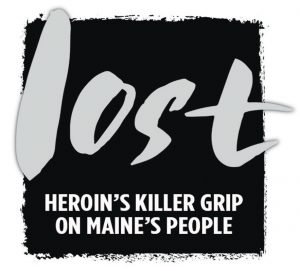In June, Maine Attorney General Janet Mills joined with a bipartisan coalition of attorneys general from across the country to investigate the practices of manufacturers of opioids.
Mills said the coalition is investigating what role opioid manufacturers may have played in creating or prolonging the drug epidemic.
“We need to get the genie back in the pill bottle; our society is awash in pills and it is killing us,” Mills said in a statement at the time. She went on to say that the vast majority of people arrested for possession of heroin or fentanyl tell authorities that their substance abuse disorder began with painkiller prescriptions.
In September, Mills joined the attorneys general of 36 other states in expressing support for offering doctors financial incentives to seek pain therapies that don’t involve the prescription of opioid painkillers. The attorneys general asked the health insurance industry to prioritize alternative pain therapy treatment options such as physical therapy, acupuncture, massage and chiropractic care over opioids to treat patients’ chronic pain.
Maine has made progress in reducing the number of opioid prescriptions. According to a report issued in July, opioid prescriptions in Maine fell 21.5 percent from 2013 to 2016. That represented the fourth highest drop in the nation, which averaged a 14.6 reduction over the same period. Maine also expanded law enforcement efforts to curb the flow of drugs coming into the state. From 2014 to 2016, the Maine Drug Enforcement Agency increased the number of heroin investigations from 306 to 531.
This year, Maine’s opioid epidemic has been claiming an average of one life a day, according to the data released in September by the Maine Attorney General’s Office. The report said that drug overdoses killed 185 people in the 181-day period between January and June 2017. That represents a slight decrease from the 189 deaths that were recorded during the same time period in 2016.
The total number of deaths caused by drug overdoses in 2016 set a new record. The Attorney General’s Office said that 376 people died in 2016 – an increase of nearly 40 percent from 2015. The office also found that fentanyl, linked to 61 percent of the overdose deaths in 2017, has supplanted heroin as the deadliest drug.
Copy the Story LinkSend questions/comments to the editors.



Success. Please wait for the page to reload. If the page does not reload within 5 seconds, please refresh the page.
Enter your email and password to access comments.
Hi, to comment on stories you must . This profile is in addition to your subscription and website login.
Already have a commenting profile? .
Invalid username/password.
Please check your email to confirm and complete your registration.
Only subscribers are eligible to post comments. Please subscribe or login first for digital access. Here’s why.
Use the form below to reset your password. When you've submitted your account email, we will send an email with a reset code.